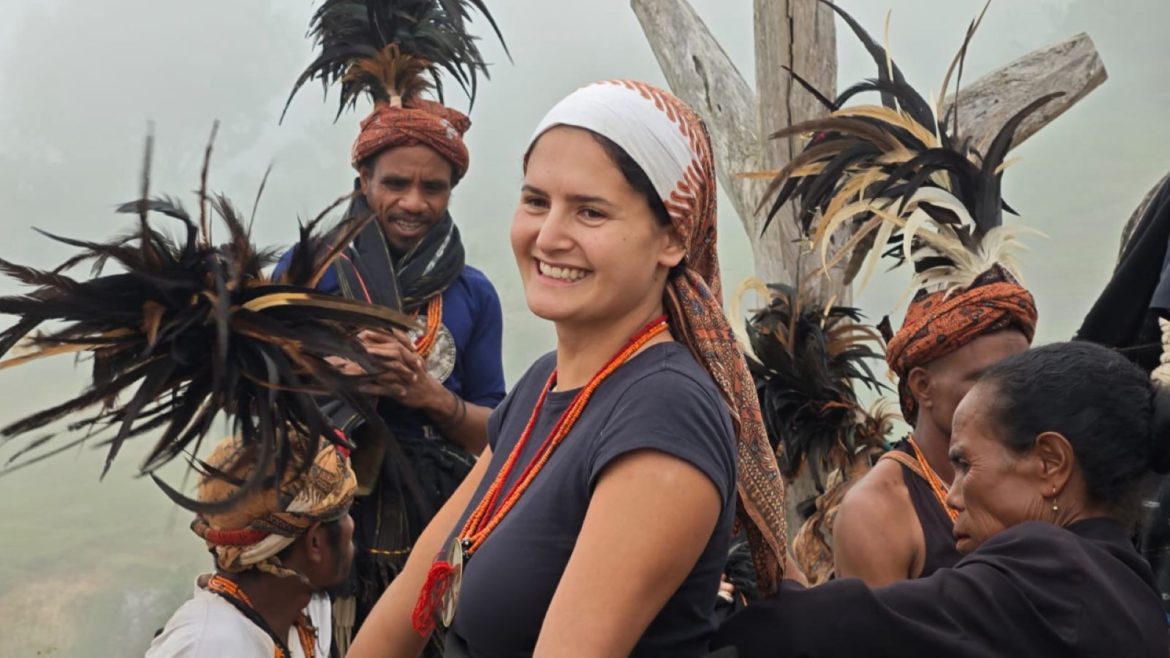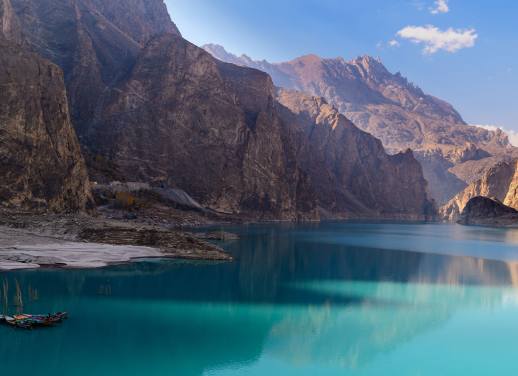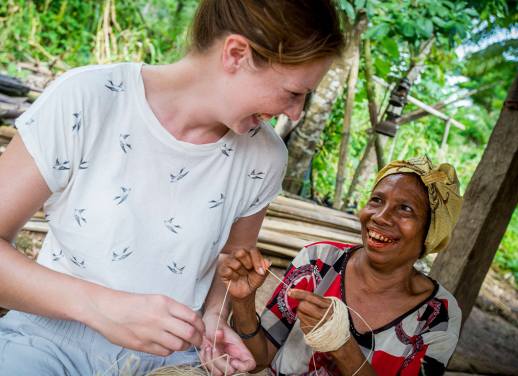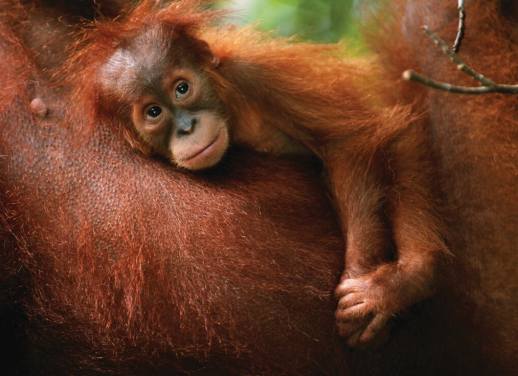Maacah had always dreamed of visiting her father’s homeland. After he passed away, she knew it was time to make the journey to Timor-Leste.
It was the small things, like leafy green vegetables sold by the side of the road, that most reminded Maacah of her father, Alberto, while travelling through Timor-Leste.
‘He always grew spinach and potatoes in our backyard,’ she explains. ‘We moved houses a few times, but he always managed to start a new garden. Seeing the stalls, I was like, no wonder Dad knew how to grow all these things. It’s what he grew up with.’
Timor-Leste encompasses the eastern half of the island of Timor in South East Asia. It gained independence from Indonesia in 2002, making it one of the youngest countries in the world.
Maacah had wanted to visit for years, but Alberto was never happy whenever she brought it up. She admits that it was hard to get her father talking about his country of birth.
Alberto was born in Talimoro, a small village south of the coastal town of Dili. He had eight brothers and a sister and began working for his godparents in Dili when he was 10, tending to the garden and horses while studying Portuguese and religion.
Alberto was 21 when Indonesia invaded Timor in 1975. Over the next 24 years, an estimated 170,000 Timorese – a quarter of the population – would die from famine, fighting and massacres.
During the early stages of Indonesia’s occupation, Alberto was fortunate to board a ship to Australia alongside his Portuguese godparents. They travelled to Darwin, and from there, Alberto made his way to Perth. That would be where he spent the rest of his life embracing his adopted home.
‘I think he was very, very grateful to have come to Australia. He always had Australian flags and hats because he just loved it,’ says Maacah.
Maacah had wanted to visit for years, but Alberto was never happy whenever she brought it up. She admits that it was hard to get her father talking about his country of birth.
Reflecting on her father’s complex relationship with Timor she adds that he didn’t want to go back. ‘It was very traumatic for him, especially when the war started and the Indonesians invaded. It was a very impoverished country. He didn’t have the best memories of Timor, so we were always told it was not a safe place.’
Alberto passed away in July last year.
Maacah had planned to go to Timor-Leste early last year but was hesitant to spend the money. Timor-Leste is, after all, off the typical tourist track, so the flights can be expensive. ‘[When] he passed away, it felt like [visiting] wasn’t even a question anymore. I definitely regret not going earlier.’
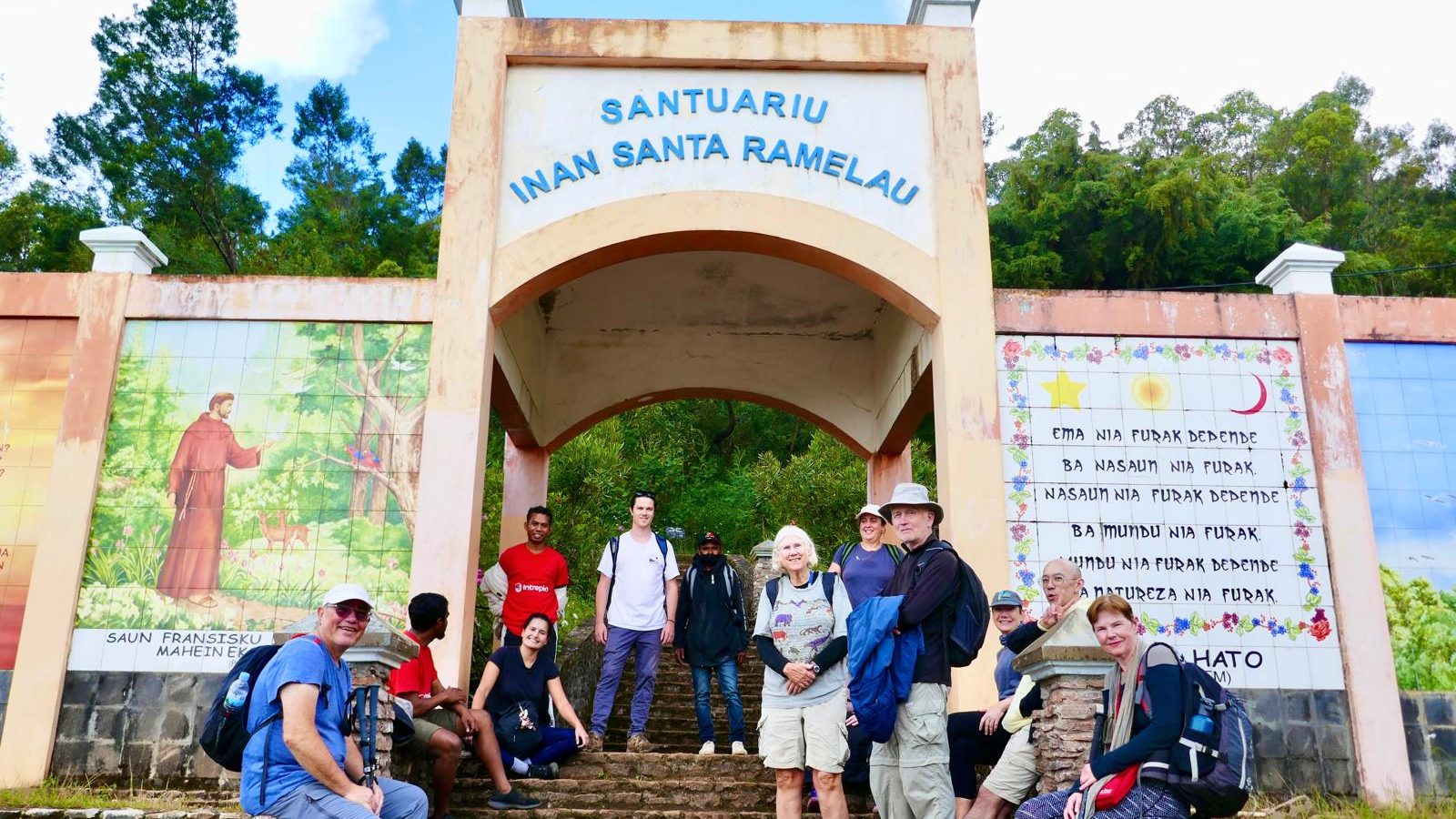
Maacah booked a spot on Intrepid’s Timor-Leste Expedition, which launched in 2023. The rest of her family, who are from Western Australia, weren’t convinced. Primarily because they thought Timor was still a dangerous place.
‘It’s fair enough,’ says Maacah, ‘because no one really knew much about the country. No one else in my family had been. And Granddad, who knew a bit more about the history, confirmed those beliefs. I guess we didn’t really grow up with a good picture of Timor.’
Adding to Maacah’s difficulties was the fact that tour providers are few and far between in Timor-Leste. Her years of research uncovered random coffee and permaculture tours, but it wasn’t until Intrepid’s expedition launched that Maacah felt comfortable committing to the journey.
‘I wasn’t sure what to expect [in Timor] but knowing I was going to be with a group and a trusted company made it feel a lot more accessible and safe. It was kind of a no-brainer. As soon as I saw it, I was like, okay, that’s what I’m doing.’
Considering the picture of Timor-Leste that Maacah was raised with, it’s no surprise she expected to feel unsafe. She had visions of an impoverished country still deep in the process of healing, but she says her father was a happy, helpful, loving person. She imagined the Timorese to be the same and was proven right upon landing in Dili.
‘It was the day before Independence Day, so there were Timorese flags all over the place. You could tell everyone was so happy and proud of how far the country has come in such little time. It’s only been 22 years since they gained independence, so it’s a very big day for them. And it was really cool seeing how excited everyone was.’
Later in the trip, Maacah and the group visited Dili’s Timorese Resistance Archive and Museum to learn more about the Indonesian invasion and Timorese resistance, the war, the massacres and the process of rebuilding. This helped to contextualise the importance of Independence Day for the Timorese and shed some light on what her father had been through.
‘It just made me feel really, really grateful,’ says Maacah. ‘Because if he had stayed, he and his family probably wouldn’t have made it, knowing the statistics of how many people were killed. It’s hard to know how many family members he would still have, so it’d be very interesting to go back, ask around and see who knew him.’
Maacah didn’t reveal her Timorese ancestry until the second day of the expedition, when one of her guides, Ella, shared that she came from the Ermera region. The name sounded familiar. Maacah thought it could be where her father was from, so the two of them began figuring out where he grew up and where his family might be.
While Maacah didn’t travel to Timor with the intention of finding her father’s family, she ended up discovering something equally important – her own connection to her father’s country during a Matak Malirin ceremony in the small mountain settlement of Rabilau.
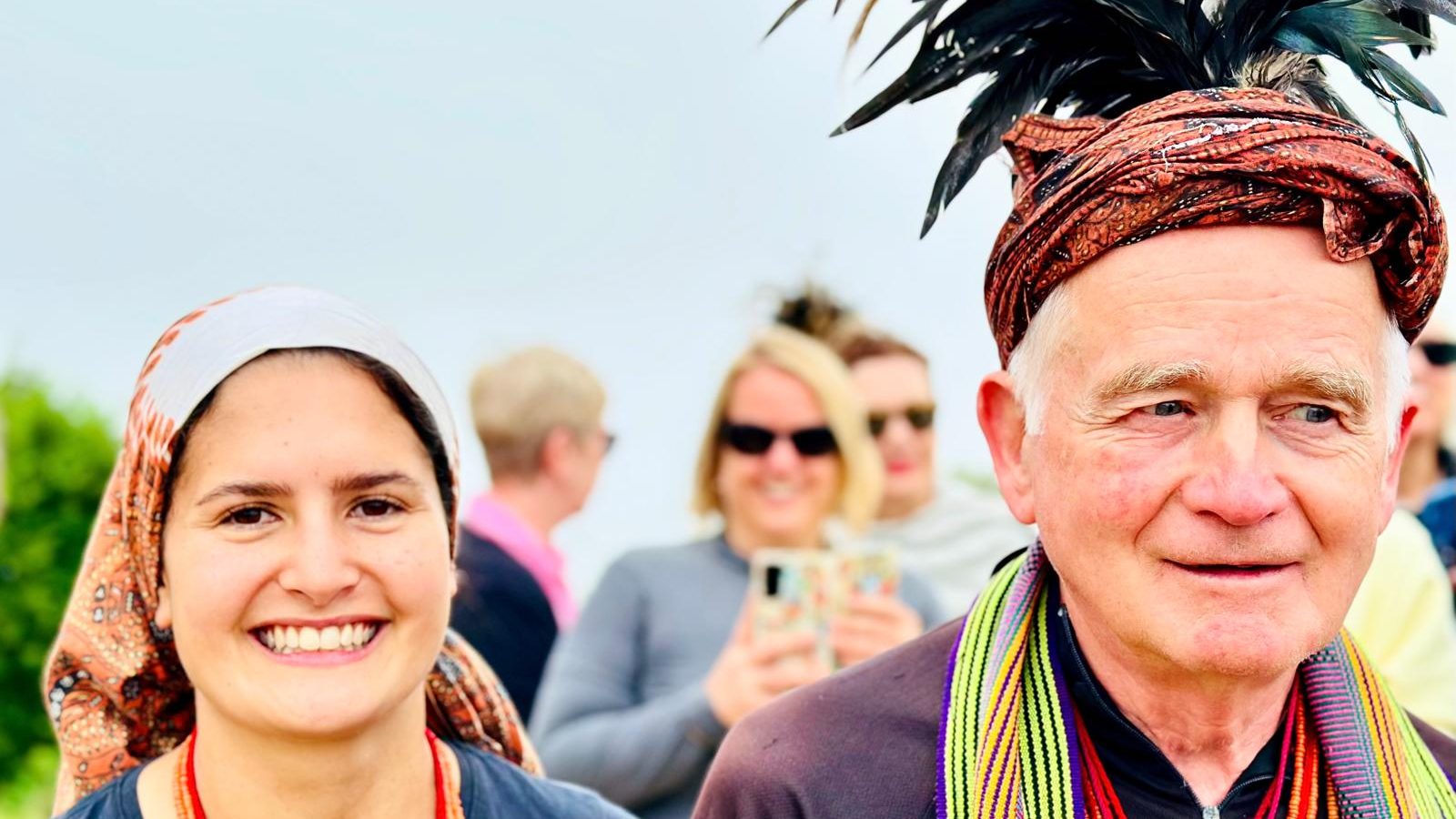
The Matak Malirin ceremony is a deeply significant cultural ritual performed to mark life events, including marriages, harvests and new beginnings. Offerings – food, betel nut, candles and incense – are made to ancestral spirits, while elders lead prayers and incantations to call upon these spirits to bless the occasion.
When they found out Alberto had passed away, they thanked his soul for guiding Maacah to his homeland and assured Maacah that they would all be her father now.
Another important aspect of the Matak Malirin ceremony is dance. These dances are performed in traditional attire to express joy and reverence and Maacah was chosen to participate alongside another traveller. She wasn’t expecting anything more than a cultural experience, but Anas, her trip leader, explained to the elders that Maacah had travelled to Timor to visit her late father’s homeland.
The elders were excited that she had come to walk in her father’s footsteps. When they found out Alberto had passed away, they thanked his soul for guiding Maacah to his homeland and assured Maacah that they would all be her father now.
‘It was really incredible,’ says Maacah, reflecting on the ceremony. ‘One of them prayed for me and said that although Dad’s not with us, they know he is happy. It was a really special moment because they all had features similar to Dad and were of a similar age. Just seeing this group of people, who look very similar to Dad, and having them welcome me back to the land and give me this blessing – it felt so surreal and so special to feel so connected to him again.’
It’s hard for Maacah to fully convey the impact of the experience. She says it was one of those moments that can’t be planned. Everyone at the ceremony was reduced to tears as Anas translated between Maacah and the elders, and though communication was tough, they were soon hugging each other.
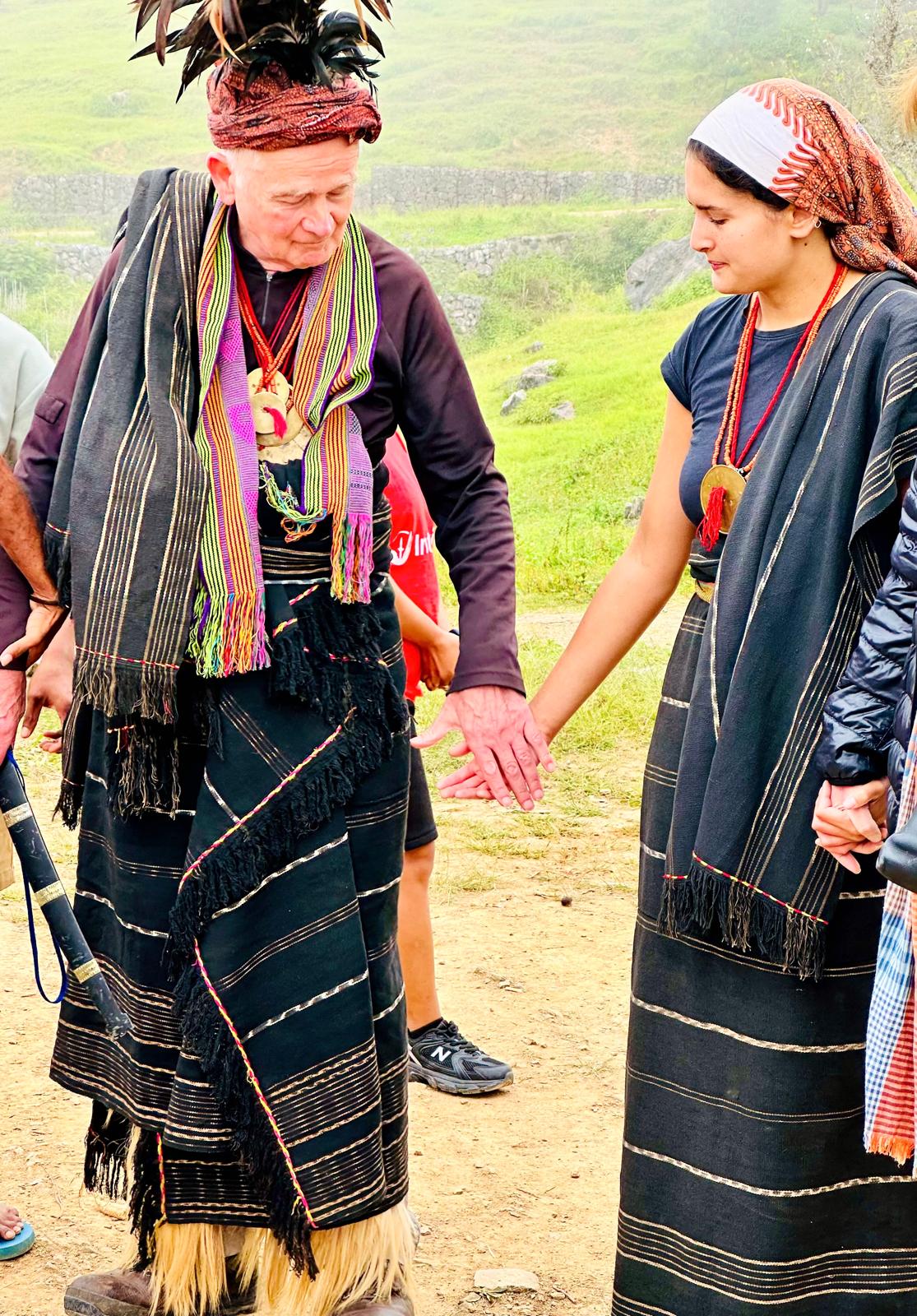
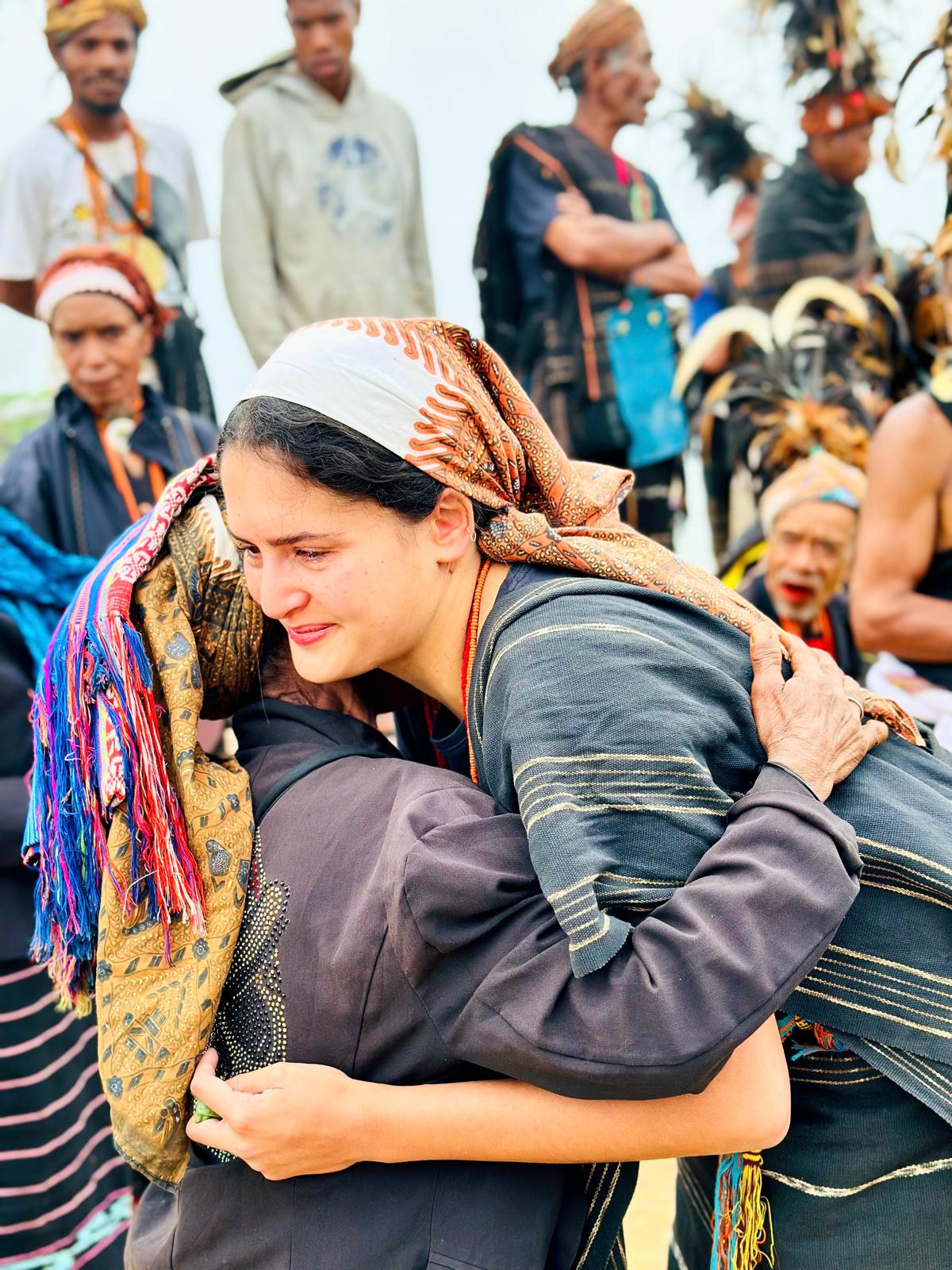
With a newfound sense of belonging, Maacah continued to discover the parts of Timor-Leste she had not heard much about while growing up.
She and her fellow travellers stood under waterfalls and snorkelled the pristine reefs off Atauro Island, where they spent an evening at a Timorese homestay. They also visited several social enterprises dedicated to supporting and empowering the people of Timor-Leste, like the Alola Foundation, which aims to support women and children.
Despite its unique traditions and beliefs, stunning beaches, towering mountains and a wide range of endemic species, including sea turtles and monkeys, Timor-Leste currently sees fewer than 10 tourists daily.
There is enormous potential for sustainable tourism if it’s done right, which is why Intrepid’s Expedition was developed in partnership with Market Development Facility, a multi-country initiative promoting sustainable economic growth with the purpose of supporting local communities and expanding the potential of tourism in South East Asia.
‘It really has a bit of everything,’ says Maacah, looking back on her time in Timor-Leste. ‘Culture, landscapes, snorkelling. And there’s not much tourism, so you get a very genuine and authentic experience. You’re visiting towns and villages and they’re welcoming you with open arms. There are the mountains, and then there are the beaches with incredible snorkelling and the whale migration. I really want to learn to scuba dive and go back.’
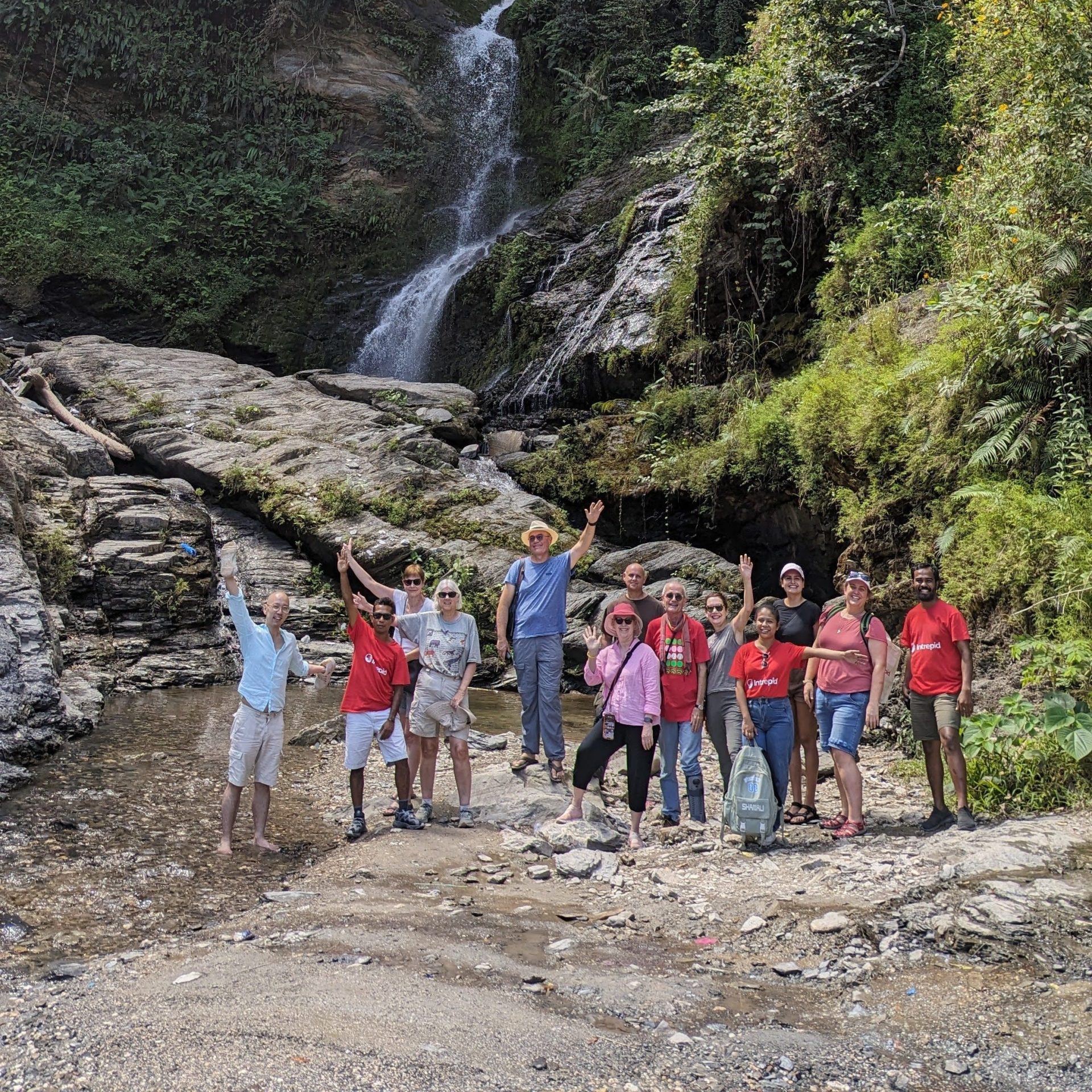
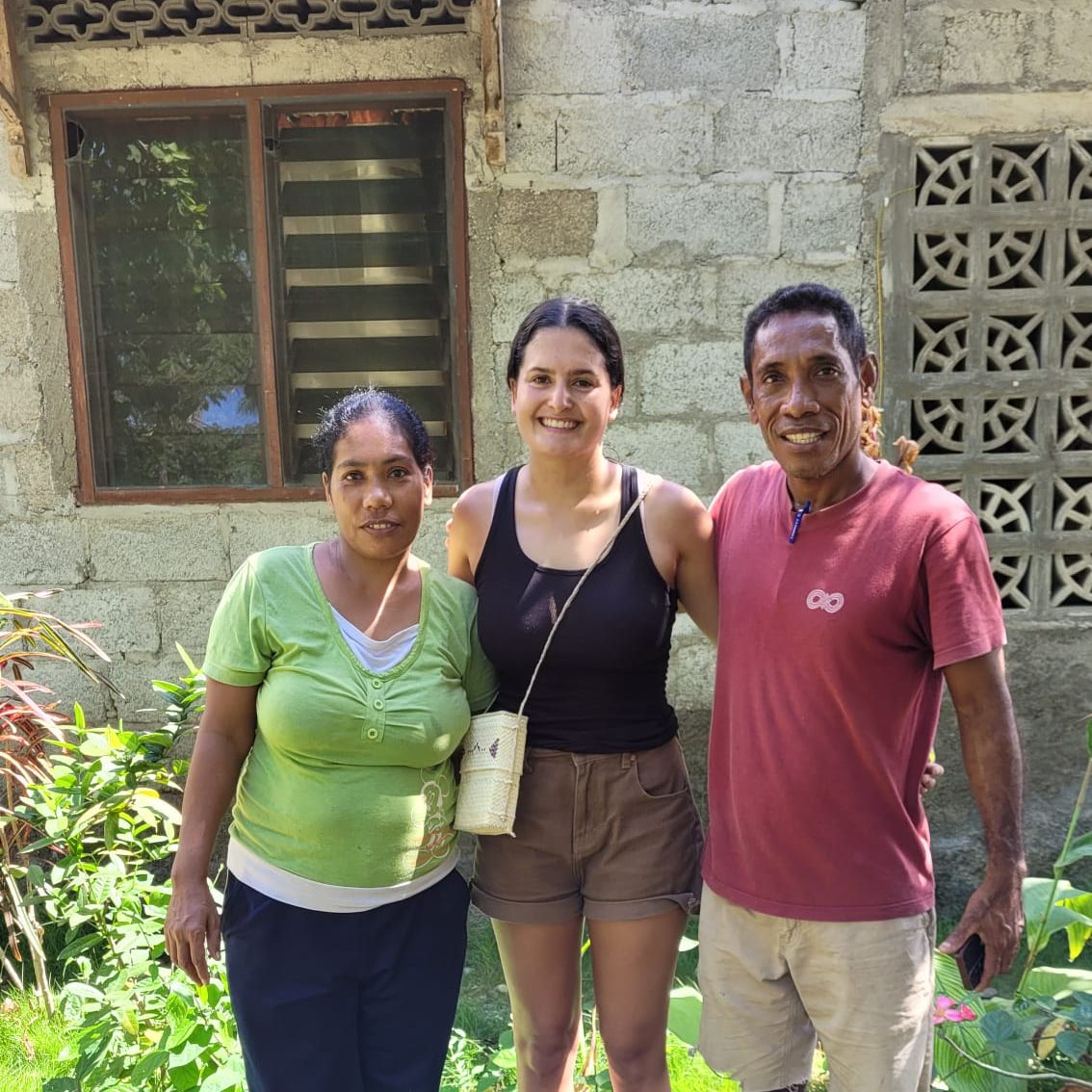
Maacah is also motivated by the thought of learning Tetum (one of the country’s official languages) and travelling to Alberto’s village. She’d like to learn more about how he grew up and find out whether anyone remembers him. She says it’s a shame that her father is no longer around to talk about her time and experiences in Timor or have those deeper conversations about his childhood.
‘I know he would have loved that. I’m not going to have regrets now, but I would have loved for him to go back. I know it’s a very difficult situation because lots of people don’t want to go back. They have PTSD from their experiences there. But I would have loved for him to have gone when the country is mostly at peace and not at war. I think it would have been really incredible for him to see it as an independent country. Obviously you can’t do anything now, but I can just imagine taking him back to Dili. Seeing his country safe again would have been really amazing.’
Maacah visited her father’s homeland on Intrepid’s Timor-Leste Expedition.

